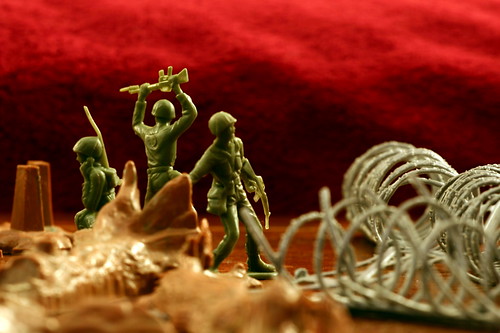
A War of Attrition
This class completed our auction unit. There were two key highlights:
1. N is a big deal. More than anything else, the number of bidders is the key variable in constructing a successful auction. We illustrated this in two ways. First, a quick case about the failure of the German 3g auctions owing to the fact that the number of licenses equaled the number of large players in the industry. Second, we showed that the worst auction beats the best negotiation if it attracts one additional bidder. This latter result is important in thinking about M&A.
2. How to think about wars of attrition. Wars of attrition arise in many business situations. In strategy, both the bitter competition and Ryanair cases are about anticipating wars of attrition.
The key problem in wars of attrition is that it is often difficult to forecast the costs of the war. Auction theory can help a lot in this regard.
Key points: You should drop out of the war of attrition whenever the value of winning times the hazard rate--the chance your rival will concede in the next period conditional on how long the war has lasted to date, exceeds the cost of fighting for one more period. Thus, the central piece in the mental model is to forecast the hazard rate of concessions. One needs to be mindful of two things: The current duration of the war is informative. One needs to account for this in the forecast. Second, there is a tendency toward overoptimism. Auction theory provides a tool for calculating the hazard rate and thereby avoiding this bias.
The second key point is forecasting the cost of the war. So long as you and your rival are similar, the revenue equivalence principle applies and this can be used to forecast costs, both overall and at each point in time during the war. Forecasting costs is obviously critical in making good judgements about continuing to fight or not.
Finally, knowing the beliefs about the hazard rate of concession are the key driver, one can try to influence this. One way to do this is to try to signal that you have a very high value for the prize. A credible signal will lead the rival to conclude that the war is not worth fighting, thus shortening its duration. A second way to do this is to commit to fight a long war. This may be done by creating a war chest or hiring an agent with a reputation for not conceding to fight on your behalf. Again, if you can credibly influence the rival's perceptions of your concession probability, she will give up quickly allowing you to win the war on the cheap.
No comments:
Post a Comment